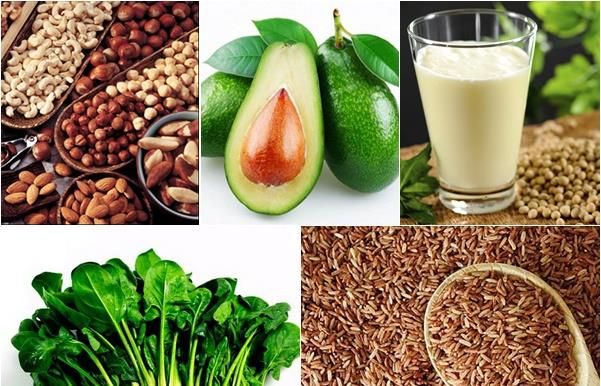Magnesium is an important mineral, essential for the physical and intellectual development of children. However, the improper supplementation not only makes the baby lose the benefits, but also can have adverse effects, harming the body.
1 / Effects of magnesium on the health of children
Lack of magnesium in children is slow to grow, nervous system and muscles are not working properly, leading to lack of calcium and phosphorus, causing symptoms of nausea, loss of appetite, insomnia , fatigue, aches and pains. shaking, twitching hands and feet. If the concentration of magnesium in the blood decreases significantly, there will be symptoms of muscle weakness, convulsions, increased stimulation, leading to hypoglycemia, coma.

How is vitamin supplement for children? Through food, most children will get all the nutrients their bodies need. However, babies born prematurely or with health problems may be advised to get a daily supplement of vitamins and minerals. These are essential factors for the body to build strong bones and teeth, and prevent anemia.
2 / How to get enough magnesium for children?
Magnesium exists in very small quantities, averaging 30g with a body weighing 60kg, but it is present in the composition of nearly 300 different enzymes, regulating different functions. About 50 - 75% of magnesium in the body is concentrated in bones (magnesium combines with calcium and phosphorus in bone formation), most of the rest is distributed in muscles, soft tissue organizations and a very small amount in blood. The concentration of magnesium in the blood is always maintained at a stable level to ensure the normal functioning of the body.
Magnesium requirements vary depending on your baby's age. Ages 1-3 years: 80 mg daily, ages 4-8 need 130 mg daily. Of course, your baby doesn't have to get the required amount of magnesium each day. Instead, moms should calculate an average magnesium intake over a few days or a week.
Magnesium is present in many different foods, but in plant foods higher than animals, in foods and legumes higher than vegetables, in dark green leafy vegetables higher than light leafy vegetables, ...

Adding magnesium-containing foods to the daily nutritional menu is very important for children's health
Below is a reference table of zinc content in some foods to help you be more proactive in the process of preparing baby food.
1/2 cup whole grains: 93 mg
- About 28g dry roasted cashew: 74 mg
1/4 cup roasted peanut oil: 63 mg
1 cup of unsweetened soy milk: 61 mg
1 tablespoon of almond butter: 45 mg
1/4 cup spinach: 39 mg
1 pack of ready-made oatmeal: 36 mg
1/4 cup black beans: 30 mg
- 1 tablespoon smooth peanut butter: 25 mg
- 1 slice of bread: 23 mg
- 1/2 cup unsaturated, unsweetened yogurt: 21 mg
1/4 cup long grain brown rice: 21 mg
1/4 cup kidney beans: 18 mg
1/4 cup white beans: 17 mg
1/2 medium banana: 16 mg
1/2 cup of milk (low fat): 17 mg
1/4 cup raisins: 12 mg
1/4 cup avocado cubes: 11 mg
Note: Nuts can be choking danger to babies and with peanut butter you should apply a thin layer before feeding them. Likewise, other foods (like beans) should be crushed and finely ground. Children can eat more or less the above amount depending on their age and taste, so mothers can estimate the nutritional content to divide appropriately in the child's daily menu.
3 / How is the amount of magnesium provided too much?
The best way to provide magnesium is through daily nutrition because it is difficult for children to get an "overdose" of magnesium from their diet. But if the mother gives the baby a magnesium supplement, the baby can get too much of this mineral into the body. Mother noted that too much magnesium supplements can cause problems like diarrhea and stomach cramps. In very large doses, magnesium can cause poisoning . The maximum acceptable daily intake for magnesium supplements is 65 mg / day for children aged 1-3, and 110 mg / day for children aged 4-8.

Supplementing vitamin A for children: Vitamin A deficiency or excess is an important role for the health and development of children. Besides dietary supplements, vitamin A is also taken into the body in the form of oral tablets. However, vitamin A supplementation for this child must be carried out carefully, to avoid leading to deficiency or excess ...
>>> See more discussions with related topics:
Mother knows nothing about magnesium deficiency
Provide vitamin C for children to increase resistance














